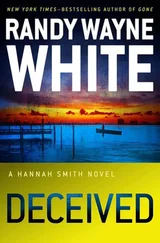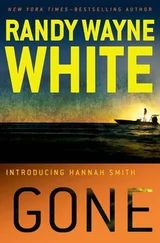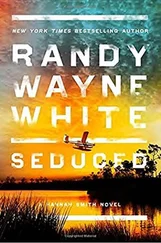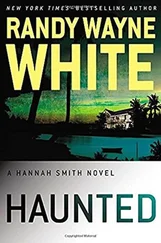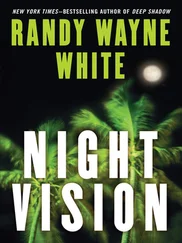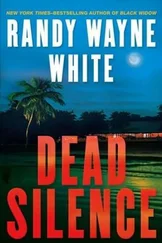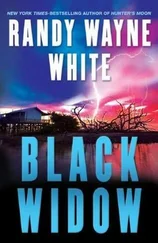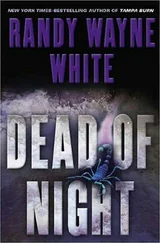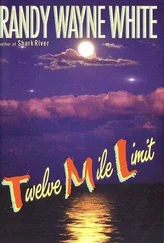Randy White - Ten thousand isles
Здесь есть возможность читать онлайн «Randy White - Ten thousand isles» весь текст электронной книги совершенно бесплатно (целиком полную версию без сокращений). В некоторых случаях можно слушать аудио, скачать через торрент в формате fb2 и присутствует краткое содержание. Жанр: Криминальный детектив, на английском языке. Описание произведения, (предисловие) а так же отзывы посетителей доступны на портале библиотеки ЛибКат.
- Название:Ten thousand isles
- Автор:
- Жанр:
- Год:неизвестен
- ISBN:нет данных
- Рейтинг книги:3 / 5. Голосов: 1
-
Избранное:Добавить в избранное
- Отзывы:
-
Ваша оценка:
- 60
- 1
- 2
- 3
- 4
- 5
Ten thousand isles: краткое содержание, описание и аннотация
Предлагаем к чтению аннотацию, описание, краткое содержание или предисловие (зависит от того, что написал сам автор книги «Ten thousand isles»). Если вы не нашли необходимую информацию о книге — напишите в комментариях, мы постараемся отыскать её.
Ten thousand isles — читать онлайн бесплатно полную книгу (весь текст) целиком
Ниже представлен текст книги, разбитый по страницам. Система сохранения места последней прочитанной страницы, позволяет с удобством читать онлайн бесплатно книгу «Ten thousand isles», без необходимости каждый раз заново искать на чём Вы остановились. Поставьте закладку, и сможете в любой момент перейти на страницу, на которой закончили чтение.
Интервал:
Закладка:
I was buttoning my jacket. The mosquitoes continued their satellite pattern around my face, but didn't land. I told her, "Lately, they haven't been saying too much."
Nora told me, "Fifteen years ago, back when the Tallahassee group surveyed the island, this looters' pit was already here. Same as most of the ones we've already passed, too.
They took pictures; made a little map. The archaeologists from back then, they kept good notes."
There were dozens of looter pits. They reminded me of bomb craters, but were actually holes dug by men sweating over their shovels, miserable in the heat but determined to find treasure. What they'd found was what they created-a hole in which to throw their beer cans when they'd finally given up.
She was standing in one of the pits now. It was a square-sided trench that was chin-deep, the walls a mosaic of shells: whelks, and conchs and fist-sized tulips. Big shells that were bleached as white as the little grave markers back on Marco.
The entire island was like that, surface and substructure. Shells everywhere you walked. The shells had a resonance when weight was applied, hard and hollow, calcium carbonate grinding, so it was like walking on bone.
Now Nora was standing in one of the holes, studying the layers of shell. She had a sheath of papers in her hand and was comparing the old survey notes and diagrams to patterns of the shell wall.
"You see the sequence of sedimentation? The different layers, I'm talking about. See where there's a stratum of shell, then a layer of organic material beneath it, then another stratum of shell? It shows how the sea level's changed. This low stratum, I think it's related to the Holocene rise in sea level."
I was standing on the edge of the hole, looking through the trees, seeing nothing but jungle, glancing at her every minute or two to show she had my attention. "You lost me."
"I was talking about the Holocene. That's… well, it describes a period of time. The Pleistocene, the Holocene? They were right on the boundary of the Ice Age. It was toward the end of the Pleistocene that glaciers lowered the sea enough to create a land bridge between Siberia and Alaska. You see signs of it in this shell wall. That was fifteen, maybe twenty, thousand years ago."
"Which is when humans first came to North America."
"That's what most people believe; they migrated across and worked their way from north to south. But there's another theory."
I said, "I hope you're not talking about visitors from space."
Her expression told me she wasn't going to dignify that with a reply.
She had her notebook out, writing with the stub of a pencil as she said, "Some believe that a separate group of people came to the Americas at about the same time as the Siberian crossing, but a different way. That a small, advanced tribe island-hopped across the Pacific and worked their way north. They became the Inca, the Maya and the Aztec. All brilliant, all very violent, with similar religious ceremonies. A much different people than the woodland and western Indians. Some weirdos think the Calusa were a part of that group."
"All pyramid builders."
"Uh-huh. Not necessarily that they came from across the Pacific, but that they worked their way up from the Bahamas, moving south to north."
I told her I'd heard rumors of that before. I'd also heard that the Calusa had traded with the Maya.
"That's not what I'm saying. There may have been some occasional contact between the two groups. A thousand years ago, some restless kid gets in a canoe, starts paddling the coast and ends up in the land of stone pyramids. Or vice versa, ends up in the land of shell pyramids. Sure. That could've happened. But a few visits don't constitute a relationship."
I was looking down into the hole, when she pulled what looked to be a flat brown rock from the wall and studied it closely for several seconds. "I wouldn't have touched this, by the way, if the looters hadn't already made such a mess."
"What is it?"
"Pottery. You can see one side is black from being fired. Pottery's not my specialty, but it looks like it could be from the Glades Plain Period, or maybe Glades Tooled. There's not enough to say. It would date back a thousand years, maybe more. Here"-she handed the pottery to me-"the last person to touch that probably believed exactly what Dr. Tomlinson said. That she had three souls. That inanimate objects absorb energy. That's why, when she was done with this pot, she intentionally broke it to free her own spirit. These mounds are littered with pottery."
I was still looking at the shard. It was reddish-brown with a hint of a rim. "You and Tomlinson will have lots and lots in common."
"Oh boy, there's that tone again. Okay, most people think, hey, that's stupid. Objects don't have a spirit-bowls and rocks, metal and things. But stop to think about Saint Christopher medals and crosses, Rosary beads, Stars of David. Those are the obvious ones. They're not just symbols. People believe they have power. Tattoos and piercings? Same thing. The Nike swoosh mark-check out the ghetto gangs. Power objects."
"Animism."
"Yes, animism, you bet. It's the most consistent connection between religions."
She took the potsherd and fitted it back into the shell wall exacdy where she'd found it. "Connective religions, that's my specialty. I also happen to be one of those people who believes that the Calusa came from the Bahamas. Maybe South America. There's not a bit of artifactual evidence, but I think we'll find it."
"So you're one of the kooks."
For the first time, I was favored with her endearing smile. "Actually, I said weirdos. Yep, I am a weirdo. A hundred-percent weirdo. I believe that ten thousand years ago, people were just as motivated to roam and explore and pass along their personal religion as people are today. Isn't that crazy?"
"Quite the radical."
She began to fight her way through the brush again. "That's what my professors always thought."
"Then how'd you end up assistant director of a museum so young? What are you twenty-two, twenty-three?"
She wagged her eyebrows as if she were being tricky. "Until there's proof, I keep my weirdo opinions to myself."
Twelve
Did you hear a boat?" I'd stopped on the crest of a high mound, my head tilted, listening.
She stopped ahead of me; waited for a moment in silence. "I can hear boats out on the Gulf. That's all." She pulled a bandanna out of her pocket and wiped her face. "Some view, huh?"
I touched an index finger to my lips. I could hear the buzz of cicadas… the ascending whistle of ospreys… the thoracic rhythm of a pile driver burying condo footings on Marco. I thought sure I'd heard an outboard, but it was gone now. "Maybe it was a boat coming out of Barfield Bay." Through limbs and vines, we could see the bay glittering Formica-like in noon sunlight. Beyond, on Marco Island, were rows of houses, then a high hill topped with trees. Indian Hill. What else could it be? I wondered if Teddy Bauerstock really was up there on the mounds looking out. I wondered if he really was thinking about Dorothy.
The thought keyed an unexpected mental portrait that was as dazzling as a camera strobe.
When an image has been deeply imbedded in the brain, our neurotransmitters can become potent, high-resolution cathodes. For a moment, Dorothy was gazing into my eyes once more. It was a familiar and knowing look. Her face was as pale as a mushroom. Dark pupils within her blue eyes burrowed into mine.
"We're almost there. Her dig site."
Nora didn't use a name. As if she knew Dorothy was in my thoughts.
I followed her across the mound.
On a couple of the mounds were bathtub-sized cisterns sunken into the shell. American setders had built them to catch and store fresh water.
Читать дальшеИнтервал:
Закладка:
Похожие книги на «Ten thousand isles»
Представляем Вашему вниманию похожие книги на «Ten thousand isles» списком для выбора. Мы отобрали схожую по названию и смыслу литературу в надежде предоставить читателям больше вариантов отыскать новые, интересные, ещё непрочитанные произведения.
Обсуждение, отзывы о книге «Ten thousand isles» и просто собственные мнения читателей. Оставьте ваши комментарии, напишите, что Вы думаете о произведении, его смысле или главных героях. Укажите что конкретно понравилось, а что нет, и почему Вы так считаете.

